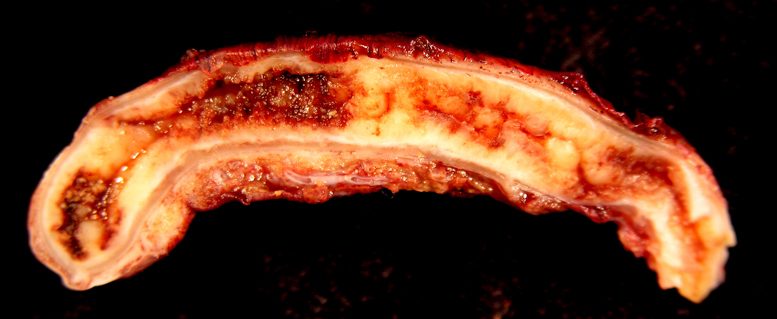The purpose of the appendix has remained an enduring mystery to scientists. New research, however, presents a new theory: the appendix provides a secondary immune function.
What this means is that appendices would theoretically catalyze (accelerate) immune cell response and release good bacteria into your body if your immune system becomes depleted. This would give the appendix a useful purpose as a reservoir for healthy gut bacteria.
The appendix was previously considered a vestigial organ, and relatively useless. However, it isn’t alone – other parts of the human body, such as wisdom teeth or the coccyx, are remnants from millions of years of human evolution, and serve no real purpose within the present-day human body.
The study, which was led by scientists at the Midwestern University Arizona College of Osteopathic Medicine, used an international team of researchers who looked at 533 species of mammals and whether or not they had an appendix, and then created a genetic tree to map the evolution of the appendix throughout said species.
What they found was that the appendix has had a storied evolution history, and has evolved anywhere between 29 and 41 times, which suggested that the appendix had a more useful purpose than researchers already knew.
Researchers also found that animals with appendixes had a higher concentration of lymphoid tissue in the cecum. The cecum is where the appendix stems from, and lymphoid tissue is theorized to set off an immune reaction when the body is put under stress.
“This finding suggests that the appendix may play an important role as a secondary immune organ,” the team wrote in a press statement.
“Lymphatic tissue can also stimulate growth of some types of beneficial gut bacteria, providing further evidence that the appendix may serve as a “safe house” for helpful gut bacteria.”
The study also suggests that the appendix could use its reservoir of bacteria if we were to lose our own healthy gut microbes. This can happen for several reasons, including antibiotic use, which can result in the trillions of microbes of bacteria within our digestive system to be flushed out. This can be harmful, as it leaves us more susceptible to infections. The theory here is that the appendix contains good bacteria that can flood our guts, should this ever happen.
The study was also able to disprove several hypotheses put forth previously. Several previous studies have attempted to link the appendix to dietary or environmental factors, but these genetic trees did not show any connection.
This study supports previous findings, including a 2012 study that suggested people were more likely to recover from severe gut infections if their appendix had not been removed previously.



